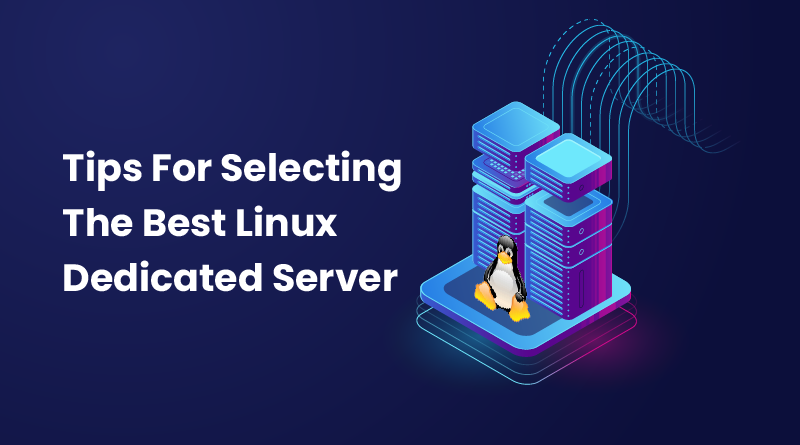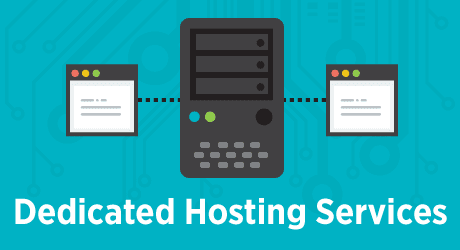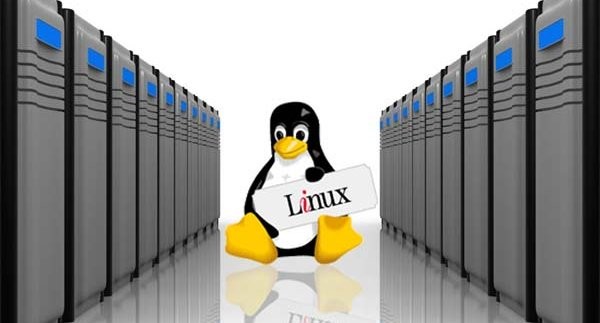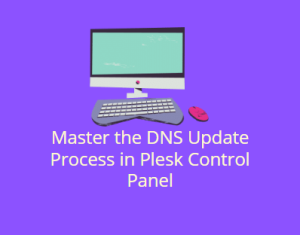
In the realm of web hosting, selecting the right server is paramount for ensuring optimal performance, security, and scalability of your online ventures. Among the plethora of options available, Linux dedicated servers stand out for their robustness, flexibility, and cost-effectiveness. However, choosing the best Linux dedicated server requires careful consideration of various factors to align with your specific needs and goals. In this guide, we delve into key tips and considerations to empower you in making informed decisions when selecting the ideal Linux dedicated server.

Table of Contents
Why Choose A Dedicated Server?
Choosing a dedicated server offers numerous advantages, making it an attractive option for individuals and businesses with specific hosting needs. Here are several compelling reasons why opting for a dedicated server might be the right choice:

- Enhanced Performance: With a dedicated server, you have exclusive access to all hardware resources, including CPU, RAM, and storage. This translates to superior performance and faster loading times for your websites or applications, particularly when compared to shared hosting environments where resources are distributed among multiple users.
- Increased Reliability: Dedicated servers offer greater reliability and stability compared to shared hosting or virtual private servers (VPS). Since you’re not sharing resources with other users, there’s no risk of performance degradation due to neighboring websites or applications consuming excessive resources.
- Enhanced Security: Security is a top priority for any online venture. Dedicated servers provide a higher level of security compared to shared hosting, as you have full control over security configurations and can implement custom security measures tailored to your specific needs. This level of control minimizes the risk of security breaches and ensures the protection of sensitive data.
- Customization and Control: With a dedicated server, you have complete control over server configurations, operating system, software installations, and security settings. This level of customization allows you to tailor the server environment to meet the unique requirements of your websites or applications, optimizing performance and functionality.
- Scalability: Dedicated servers offer scalability options to accommodate the growth of your online ventures. You can easily upgrade hardware resources, such as CPU, RAM, and storage, as your needs expand, ensuring continuity and performance optimization without the hassle of migration or downtime.
Why choose A Linux Dedicated Server?
Choosing a Linux dedicated server offers a myriad of benefits, making it a preferred choice for individuals and businesses alike. Here are several compelling reasons why opting for a Linux dedicated server might be the right decision:

- Cost-Effectiveness: Linux is renowned for being open-source, which means it’s free to use and distribute. This significantly reduces the overall cost of ownership compared to proprietary operating systems like Windows Server. With Linux, you can leverage powerful server-grade software without the burden of expensive licensing fees, making it a cost-effective solution for hosting needs.
- Stability and Reliability: Linux is celebrated for its stability and reliability, making it an ideal choice for mission-critical applications and high-traffic websites. The robust architecture of Linux ensures minimal downtime and maximum uptime, providing a dependable platform for hosting your online ventures.
- Performance Optimization: Linux is known for its lightweight and efficient design, resulting in superior performance and faster response times compared to other operating systems. Linux dedicated servers can handle heavy workloads and resource-intensive tasks with ease, delivering optimal performance even under demanding conditions.
- Flexibility and Customization: Linux offers unparalleled flexibility and customization options, allowing you to tailor the server environment to meet your specific requirements. With access to a vast repository of open-source software and tools, you can customize every aspect of your Linux dedicated server, from the kernel to the user interface, according to your preferences and needs.
- Security and Stability: Linux is inherently more secure than other operating systems, thanks to its robust security features and active community support. With regular security updates, built-in firewalls, and extensive security configurations, Linux dedicated servers provide a solid foundation for safeguarding your data and protecting against cyber threats.
- Community Support and Documentation: Linux benefits from a vibrant and active community of developers, administrators, and users who contribute to its ongoing development and support. This vast community ensures access to a wealth of documentation, tutorials, forums, and online resources, making it easier to troubleshoot issues, seek advice, and stay updated with the latest developments in the Linux ecosystem.
- Compatibility and Interoperability: Linux boasts broad compatibility with a wide range of software and technologies, making it an interoperable platform for hosting diverse applications and services. Whether you’re running web servers, databases, email servers, or virtualization platforms, Linux provides seamless integration and compatibility with industry-standard technologies.
What Should You Consider Before You Choose A Linux Dedicated Server?
Before selecting a Linux dedicated server, it’s crucial to carefully consider several factors to ensure that your choice aligns with your specific requirements and goals. Here are key considerations to keep in mind:

- Performance Requirements: Assess your performance needs based on factors such as anticipated traffic volume, resource-intensive applications, and expected growth. Determine the required CPU, RAM, storage, and bandwidth specifications to ensure that the Linux dedicated server can handle your workload efficiently without performance bottlenecks or slowdowns.
- Operating System and Distribution: Choose the Linux distribution that best suits your preferences, familiarity, and compatibility with your applications and software stack. Popular choices include Ubuntu, CentOS, Debian, and Fedora, each offering different features, stability levels, and support cycles. Evaluate factors such as release frequency, long-term support (LTS) availability, and package availability when selecting the operating system for your dedicated server.
- Management Options: Decide on the level of management and control you require over your Linux dedicated server. Options range from fully managed solutions, where the hosting provider handles all server administration tasks, to unmanaged servers, where you have complete control and responsibility. Consider factors such as ease of use, technical expertise, and budget constraints when choosing the management option that best suits your needs.
- Security Measures: Prioritize security when selecting a Linux dedicated server provider. Look for providers that implement robust security measures, such as firewalls, intrusion detection systems, regular security updates, and DDoS protection. Additionally, consider implementing additional security measures, such as SSL certificates for encrypted communication, to enhance data protection and user trust.
- Scalability and Growth Potential: Evaluate the scalability options offered by Linux dedicated server providers to accommodate future growth and expansion. Choose a provider that allows you to easily upgrade hardware resources, such as CPU, RAM, and storage, without downtime or migration hassles. Scalability ensures that your server can grow with your business needs without compromising performance or reliability.
- Network Infrastructure and Uptime Guarantee: Assess the reliability and performance of the network infrastructure and data center facilities supporting the Linux dedicated server. Look for providers with robust SLAs (Service Level Agreements) offering uptime guarantees and redundancy measures to minimize downtime and ensure uninterrupted service. Consider factors such as network connectivity, bandwidth capacity, geographic location, and CDN integration for optimal performance and user experience.
- Support and Customer Service: Choose a Linux dedicated server provider that offers responsive and knowledgeable customer support. Look for providers offering 24/7 support via multiple channels, including live chat, ticketing system, email, and phone support. Assess the quality and reputation of customer service by reviewing user testimonials, online reviews, and support response times.
Conclusion
Selecting the best Linux dedicated server requires a strategic approach and thorough evaluation of various factors, including performance, hardware specifications, operating system, management options, security measures, scalability, network infrastructure, support, and cost considerations. By understanding your requirements and conducting diligent research, you can make informed decisions that align with your goals and pave the way for a seamless and successful hosting experience. Choose wisely, and empower your online ventures with a robust and reliable Linux dedicated server solution.





